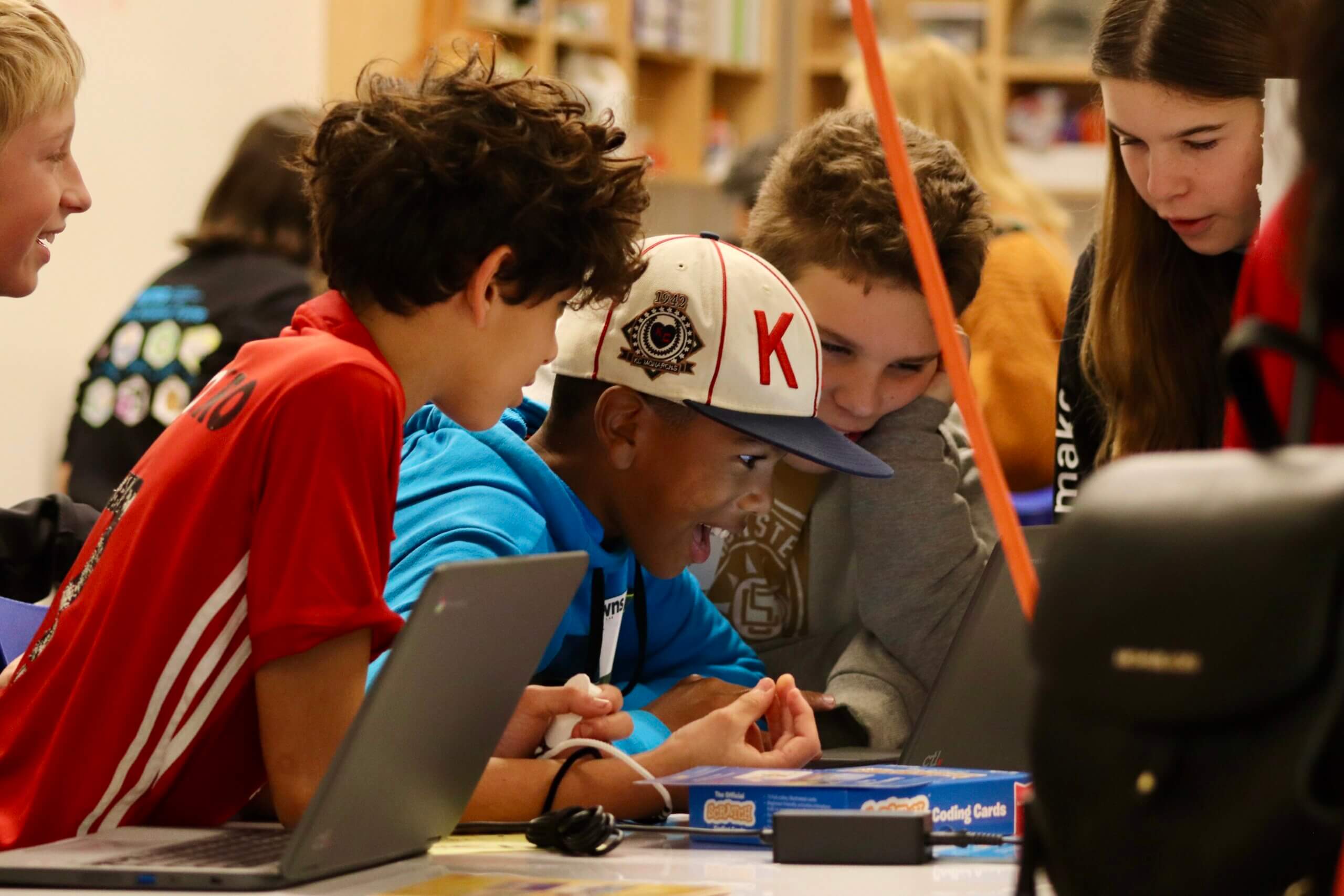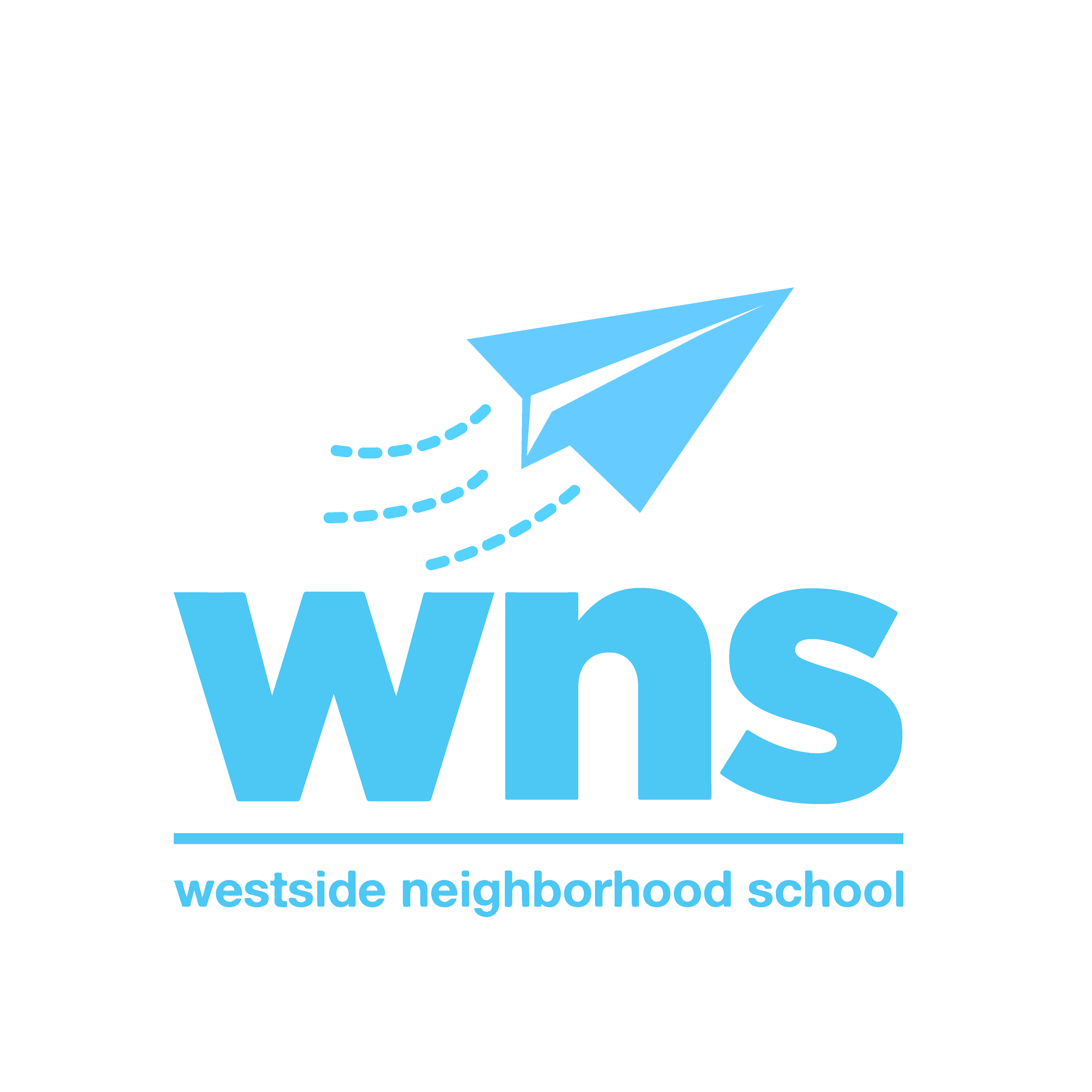
By Kim de Deaux | School Psychologist at Westside Neighborhood School
The concept of Neurodiversity emerged in the late 1990s and refers to the idea that there’s great diversity in the way people learn, process information, think, behave and experience the world. Whether you yourself or your child are neurodiverse, the topic of neurodiversity is one of the utmost importance, and touches all of us. Contrary to the medical model of pathology that had dominated until that point, which espoused the idea that there is one “normal“ type of brain, neurodiversity recognizes that there is beauty, strength and value in the myriad of different ways in which people view and experience the world. The neurodiversity model recognizes and points out that neurodivergent people face problems because of a lack of acceptance, rather than because of anything intrinsically wrong with them. As such, the way we “treat” neurodiverse people is finally changing. While the pathological model focused on therapies aimed at changing children and teaching them to conform or mask their ways of being so that they could pass as “normal”, we now recognize the need to change the environment to accommodate and even anticipate their unique needs.
So, how do we talk to our kids about neurodiversity? The same way we should talk to them about most important topics: clearly, succinctly, and without fear.
If your child is neurodiverse, and has already been evaluated by a professional, hopefully that person was able to educate your child about their unique qualities and learning style. The goal here is to empower the child to view their differences, not as deficits, but as qualities that make them special and can add to their lives, and the world in unique ways. This is no small feat given the way we’ve handled this in the past as a society! It represents a gigantic shift from the way things have traditionally been done, but is a beautiful and important opportunity to leave the shame behind and embrace what makes us different.
If your child is not neurodiverse, they have definitely already – and will most certainly in the future – share their classroom, workplace, and the world with people who are. As such, it is to their benefit that they have an understanding about diversity in all its forms, so that they are not afraid or confused about it and don’t run the risk of causing emotional harm to others.
Here are some tips about how to discuss neurodiversity with your children:
- Be proactive: introduce your child to neurodiverse characters and outlooks early in life. Here are some book and film titles to start with:
- Books for the littles: Aaron Slater Illustrator, Through the Eyes of Me, Through the Eyes of Us, See What I Can Do, Clementine, Why Johnny Doesn’t Flap, Don’t Hug Doug (He Doesn’t Like It), The Boy with Big, Big Feelings.
- Movies for littles: Finding Dory, Eleanor’s Secret, The Speed Cubers, A Costume for Nicolas.
- Books for kids ages 10+: Counting By 7s, Anything but Typical, The Goldfish Boy, Check Mates, Fish in a Tree, Fifty-Four Things Wrong With Gwendolyn Rogers.
- Movies for kids 10+: The Reason I Jump, Far From the Tree, Life Animated.
- Movies for all ages: Float (Pixar short film), Loop (Disney short film).
- Books for parents: Uniquely Human: A Different Way of Seeing Autism, Population One – Autism, Advocacy and the Will to Succeed, Neurotribes: The Legacy of Autism and the Future of Neurodiversity, Divergent Mind: Thriving in a World That Wasn’t Designed for You, All the Weight of Our Dreams: On Living Racialized Autism, Scatterbrain: How the Mind’s Mistakes Make Humans Creative, Innovative and Successful.
2. Be mindful of your own beliefs: whether you grew up with a disabled cousin who was always in the shadows, or you have your own difficult history with special education yourself, be aware of how your own experiences might be shrouded in shame, fear or rejection of neurological differences. Explain to your child that in the not too distant past people were unaware of the benefits and value of neurodiverse brains and how things are changing for the better.
3. Anticipate and accommodate differences during social gatherings: just as you might ask about food allergies when sending your child’s birthday party invitation, you can make others feel included and seen by asking about sensory sensitivities that you may need to be aware of. If your child’s party involves stimulating activities like a bouncy house, be sure to also have quiet options, such as a craft table or book nook that is in a more calm section of the party. Small changes like these are very easy to implement and will mean a lot to neurodiverse children and families.
4. Troubleshoot: have a plan for teachable moments:
- Your child refers to differences as “weird”:
Sometimes, your child might say something like, “Why do some people talk weird?” Explain that speaking with a stutter or a robotic intonation doesn’t make someone weird, just different. Emphasize to your child that there is no “normal” and “weird”, or “us” and “them.”
- Your child uses inappropriate terms when discussing differences:
If your child uses language that could be perceived as hurtful, gently correct them and provide a better alternative. Avoid a punitive attitude as your child is likely not coming from a place of prejudice or cruelty. Help them understand the impact their words and perceptions could have on others.
- Your child asks about differences in public:
Though this can be uncomfortable, children often are unaware they’re being impolite. Apologize for your child if necessary. Then provide a simple and positive response like, “Yes, the world is a very big place and not everyone looks/acts like you. Our differences make the world more interesting.” When you are in private, have a deeper conversation about the impact of our words on others despite our intent and educate your child about the specific situation.
At Westside Neighborhood School we have enlisted the help of expert psychologists in the field, who have conducted several workshops for our teachers and staff, as well as parents and caregivers. What’s more, we have created a curriculum on neurodiversity that is customized to our school and is in the process of being implemented.
Understanding that not every child can sit still at a desk with “quiet hands” and amazing eye contact every day for five days a week is something that our teachers understand and work with. At WNS we understand that neurodiverse brains, viewpoints and the solutions that they can develop are key to solving the world’s current and future problems. It behooves us to finally understand that pathologizing diversity hurts not only those with divergent ways of being but ultimately all of us. Educating children who understand this from the start is a task that we embrace and value.
Kimberly de Deaux- MA, NCSP, ABSNP, LEP is a bilingual Licensed Educational Psychologist with over 13 years of experience in both public and private schools. She has extensive psychoeducational assessment experience, and a passion for educating school communities to embrace neurodiversity so that all students can experience a sense of belonging in their school communities and at large.
Westside Neighborhood School is a preschool-8th grade school in Los Angeles’ Silicon Beach area. To learn more about the WNS experience, schedule a campus tour today.






